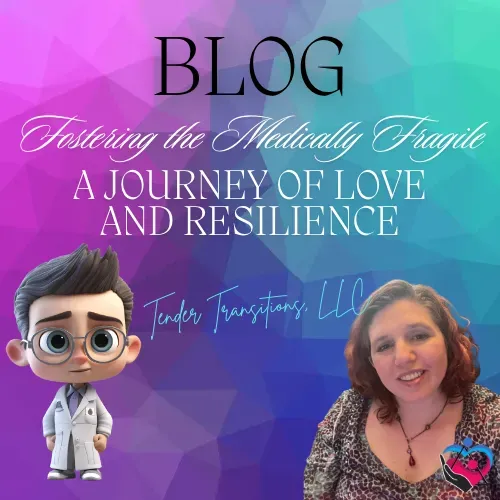Not Everyone Can Be a Foster Parent: Understanding the Realities and Responsibilities
Foster parenting is a noble and impactful endeavor, offering a safe and nurturing environment to children who need it most. However, it’s essential to recognize that not everyone is suited to become a foster parent. The role requires a unique combination of skills, dedication, and resilience, and understanding these requirements is crucial for anyone considering this path. This blog post explores why foster parenting isn’t for everyone and highlights the key attributes and challenges associated with it.
1. The Demands of Foster Parenting
Foster parenting is more than just providing a home—it’s about offering a stable, loving, and supportive environment for children who have often experienced significant trauma. The demands of this role include:
Emotional Resilience:
Foster parents must navigate the emotional challenges of caring for children who may have experienced abuse, neglect, or other forms of trauma. This requires a high level of emotional resilience and the ability to manage one’s own feelings while providing support for the child.
Patience and Flexibility:
Children in foster care often have complex needs and behaviors. Foster parents need to be patient and flexible, adapting their parenting strategies to meet the individual needs of each child.
Commitment to the System:
Being a foster parent involves working closely with child welfare agencies, social workers, and sometimes biological families. This commitment can be time-consuming and requires effective communication and collaboration skills.
2. Key Qualities of a Successful Foster Parent
While the demands of foster parenting are significant, certain qualities can make someone more suited to the role:
Empathy and Compassion:
Successful foster parents have a deep sense of empathy and compassion, allowing them to connect with and understand the emotional needs of their foster children.
Strong Communication Skills:
Effective communication with children, social workers, and biological families is essential. Foster parents need to articulate concerns, advocate for their child’s needs, and collaborate with various professionals.
Stability and Reliability:
Providing a stable environment is crucial for foster children, who may have experienced instability in their past. Foster parents must offer a reliable and consistent home where children can feel secure.
Preparedness for Challenges:
Foster parents should be prepared for the challenges that come with caring for children who may have experienced trauma or have special needs. This includes having the willingness to seek help and support when needed.
3. The Reality of Foster Care
Understanding the reality of foster care helps prospective foster parents assess whether they are prepared for the role. Some realities include:
Emotional Toll:
The emotional toll of foster parenting can be significant. Children in foster care may exhibit challenging behaviors or struggle with attachment issues, which can be emotionally draining for foster parents.
Systemic Challenges:
The foster care system itself can be complex and challenging to navigate. Foster parents often face bureaucratic hurdles, case management issues, and the stress of working with various professionals.
Impact on Family Dynamics:
Adding a foster child to a family can impact family dynamics. Existing children may need to adjust to a new sibling, and foster parents must balance the needs of all family members.
4. Recognizing Personal Limits
It’s essential for prospective foster parents to recognize their personal limits and consider whether they can meet the demands of fostering. This involves:
Self-Assessment:
Prospective foster parents should engage in honest self-assessment to evaluate their readiness for the role. This includes considering their emotional resilience, support system, and ability to handle the challenges of fostering.
Support Systems:
Having a strong support system is crucial for foster parents. This includes family, friends, and community resources that can provide emotional support and practical assistance.
Professional Guidance:
Seeking guidance from professionals in the foster care system can help prospective foster parents understand the role better and determine if it’s a good fit for them.
5. Alternative Ways to Support Foster Care
If becoming a foster parent isn’t feasible, there are many other ways to support foster care and make a difference in the lives of children:
Volunteering:
Volunteer with local child welfare organizations or foster care agencies. Volunteers can help with various tasks, from organizing events to providing mentoring.
Donations:
Financial donations or in-kind contributions (such as clothing, toys, or Advocacy: Advocate for foster care reforms and support policies that improve the welfare of children in the system. Raising awareness about the needs of foster children can drive positive change.
Supporting Foster Families:
If you know foster families, offer support in practical ways, such as providing respite care, helping with transportation, or simply offering a listening ear.
6. Conclusion
While fostering is a deeply rewarding and vital role, it’s not suited for everyone. Understanding the demands, qualities required, and realities of foster parenting can help individuals make informed decisions about whether this path is right for them. For those who determine that fostering is not their calling, there are numerous other ways to support foster care and contribute to the well-being of children in need. Ultimately, every effort counts in making a positive impact on the lives of children and families within the foster care system.

